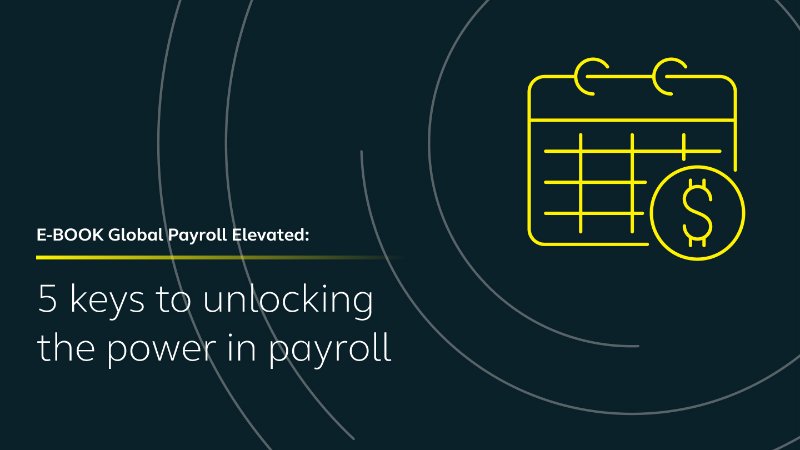
The shortage of skilled payroll talent globally can’t be ignored. As a result, payroll leaders are having to look at future resources for their organization. This is likely to be a hybrid of payroll staffing and technology including robotic process automation and artificial intelligence (AI), with the eventual objective of touchless payroll.
Beyond the payroll staffing shortage, there is a drive for data-led business planning. Much of this information will be pulled from HR and payroll data and this requires increased use of digital processes. The rise in use of HR (Human Resources) and payroll analytics in recent years demonstrates this by yielding beneficial results for businesses.
Despite good results, the adoption of AI and robotics is still low. Much of the increase (6% to 13%) can be linked to the increase in cloud payroll and the integration of chatbots and other tools to improve employee self-service. This is in addition to improved analytics that can deliver a better employee experience.
Will investment in payroll automation increase? Human brains aren't wired to make evidence-based decisions at the speed and accuracy of artificial intelligence. This builds the business case for transforming payroll processes, whether in-house, managed, or outsourced.
How to set up payroll to address future scale and complexity
Even with the staff to run it, the reality is that most organizations lack both the time and resources to successfully navigate a multi-country payroll transformation program on their own.
Modern technology-enabled managed services provided by an experienced partner are an option for many organizations to guide them through a global payroll transformation as well as the need to scale and address payroll complexity.
The use of cloud payroll processes now exceeds that of on-premise. At 62%, this is a rise from 35% in 2019. However, there is a tendency to mitigate risk by maintaining an element of on-premise technology.
Four in 10 that have moved to the cloud still use on-premise processes to support or complement their digital investment stating this “hybrid approach” was part of a phased migration or replacing end-of-life technologies.
Using AI and automation to replace repetitive processes, for example onboarding or to address data processing errors, can save the time and cost of employees. Other factors supporting the business case for automation is it encourages employee self-service. It also makes the introduction of new payroll models more straightforward, improves compliance, and is more reliable than legacy payroll systems.
Change brings uncertainty and challenge
It’s widely recognized that to succeed in the digital economy organizations must modernize. Technology-enabled managed services can address not just the modernization of payroll, but also the challenges of payroll scale and complexity to deliver results alone or as part of a wider transformation initiative.
Realistically, the ability to use payroll data intelligently is critical as part of an agile, compliant, cost-effective business.
Managed Services: What are businesses looking for?
Where old school outsourcing once helped companies take out cost, businesses now expect managed services to also add value across an organization.
Alight’s global research conducted in 2020 found that 40% of businesses will modernize payroll systems by 2023 with managed services core in their strategy and delivery.
The primary drivers included regulatory risk (42%), corporate strategy for outsourced business processes (39%), cost controls (27%), payroll talent shortages (19%), and mergers and acquisitions (M&A) and business divestment activities (15%).
According to payroll industry expert and Alight global payroll strategy lead, Pete Tiliakos, “the magic happens when deep industry expertise is combined with global reach and state-of-the-art technology. By lifting the burden where it’s heaviest, managed services can truly transform key operations, enhance performance and introduce innovation.”
This frees up leaders to add more value and focus on what matters – driving growth and maintaining competitive advantage in a rapidly evolving, more complex world.
Reasons to choose a managed services-enabled approach for payroll
- Low risk, modern, agile way to operating payroll
Businesses ready to let managed services take on functions that are critical but not differentiating free themselves to focus on innovation and growth.
- More efficient spending
Removes huge upfront and ongoing technology investment and fixed capital costs and instead payroll services are consumed in a flexible, on-demand way.
- Access to always-on payroll technology and process innovation
Managed services gives businesses solutions that are secure, fast and cost-effective with access to technologies such as AI. This intelligence and automation as well as sophisticated data analytics comes with the technical expertise to master these – without big upfront costs.
- Efficient and compliance with payroll regulations
A trusted managed services provider will ensure compliance with changing industry and regulatory obligations across all operational jurisdictions. This gives leaders the confidence to push forward to access opportunities in almost any jurisdiction
Resourcing for in-house payroll specialists is not set to get easier anytime soon. Resourcing involves the attraction and recruitment of individuals into the right role at the right time and cost.
A question to ask here, with the increased use of automation and AI in payroll, what skillsets specific to payroll do you require, if any? For example, payroll administrators in the event of payroll modernization will offer less value to the business than payroll data specialists.
The latter is perhaps where the greater gaps are. But working with the finance team (which is also set to undergo digitalization) and digital data analytics and the means to translate the outputs into meaningful business intelligence, is a skill and therefore a resource that offers greater value to the business – provided these skills are progressed in line with innovation.
A managed payroll service removes the need for traditional payroll personnel. Those already within the business can be trained to take on new roles more suited to an automated payroll process.
The ambition of many forward-looking CEOs is for a frictionless enterprise with free-flowing data. Their objective is to revolutionize non-core, but critical activities with easy-to-integrate solutions that lift the burden in tax, risk, compliance, finance and beyond. This can help them create long-term value, improving security and efficiency as well as ensuring compliance. Managed payroll is just one of the links in this chain.



